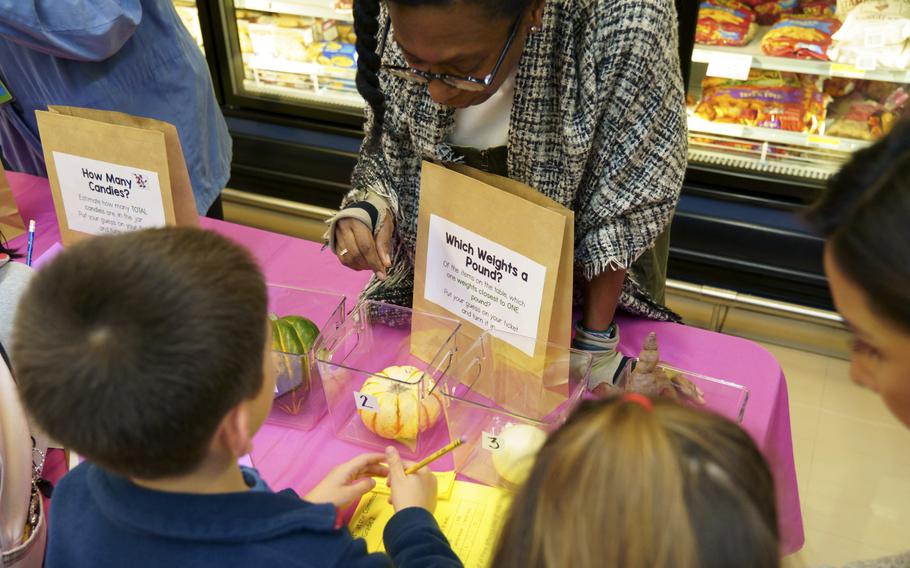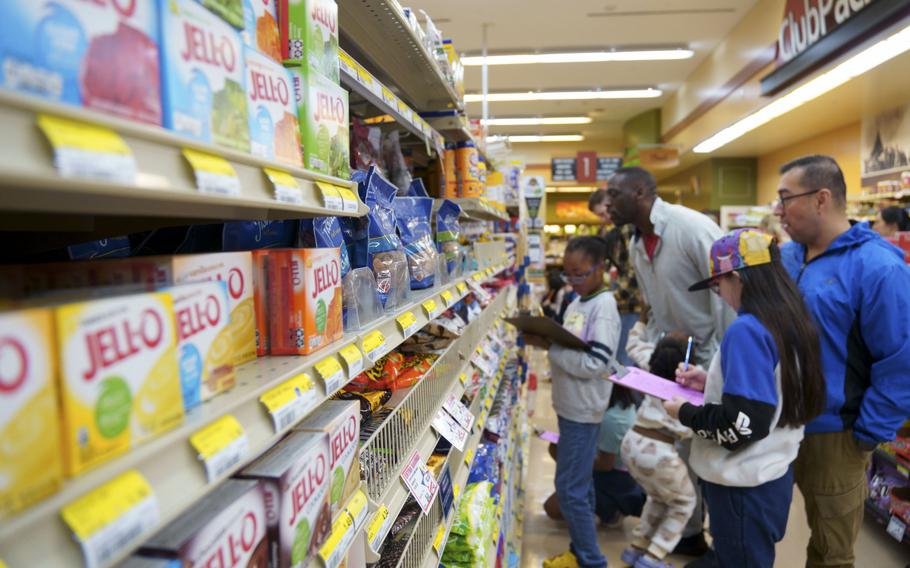
Arnn Elementary School math teacher Athea Carter leads a Math Night problem-solving event at the commisary in the Sagamihara Housing Area near Camp Zama, Japan, Nov. 16, 2023. (Akifumi Ishikawa/Stars and Stripes)
SAGAMIHARA HOUSING AREA, Japan — On-base supermarkets are also serving as classrooms for Department of Defense Education Activity students across the Pacific.
Schools in the region have been collaborating with their local commissaries to give pupils hands-on lessons in topics like nutrition, economics, marketing, business and personal finance, DODEA-Pacific spokeswoman Miranda Ferguson said by email Nov. 17.
For example, more than 50 Arnn Elementary School students — from Sure Start to fifth grade — participated in Math Night at their store in the Sagamihara Housing Area on Nov. 16. That commissary serves people assigned to nearby Camp Zama, the home of U.S. Army Japan just outside Tokyo.
The students, alongside their parents, learned about shopping, calculating the cost of groceries and problem-solving during the hourlong event.
“I thought it was a good idea to have kids involved in looking at prices at the supermarket and trying to figure out how much things cost and where things are,” Pamela Brower, mother to Arnn third-grader Thiago Brower, said at the event. “The stations are making them think, like how many lemons are in a bag? How many cookies are in a jar?”
The goal was to get the kids to make a connection between math and grocery shopping, principal Edwin Munoz said as students scrambled through the aisles around him.
“The team (of teachers) came up with the idea of helping the children make connections to real-life scenarios, and what better way than to do it in the commissary?” he said. “We’re hoping that it will help them deepen their understanding of some of these little concepts.”
The students also practiced things like rounding and estimating, said math teacher Athea Carter, one of 20 adults who helped guide students during the event.
A day earlier, students from Shirley Lanham Elementary at nearby Naval Air Facility Atsugi had their own math night at their commissary, Carter said.
“Schools have hosted curriculum nights emphasizing math, science and literacy for years,” she said. “These curriculum nights expose students to real-life application of the subject matter, and they help build community.”

Students from Arnn Elementary School take part in Math Night with their parents at the commissary in the Sagamihara Housing Area near Camp Zama, Japan, Nov. 16, 2023. (Akifumi Ishikawa/Stars and Stripes)